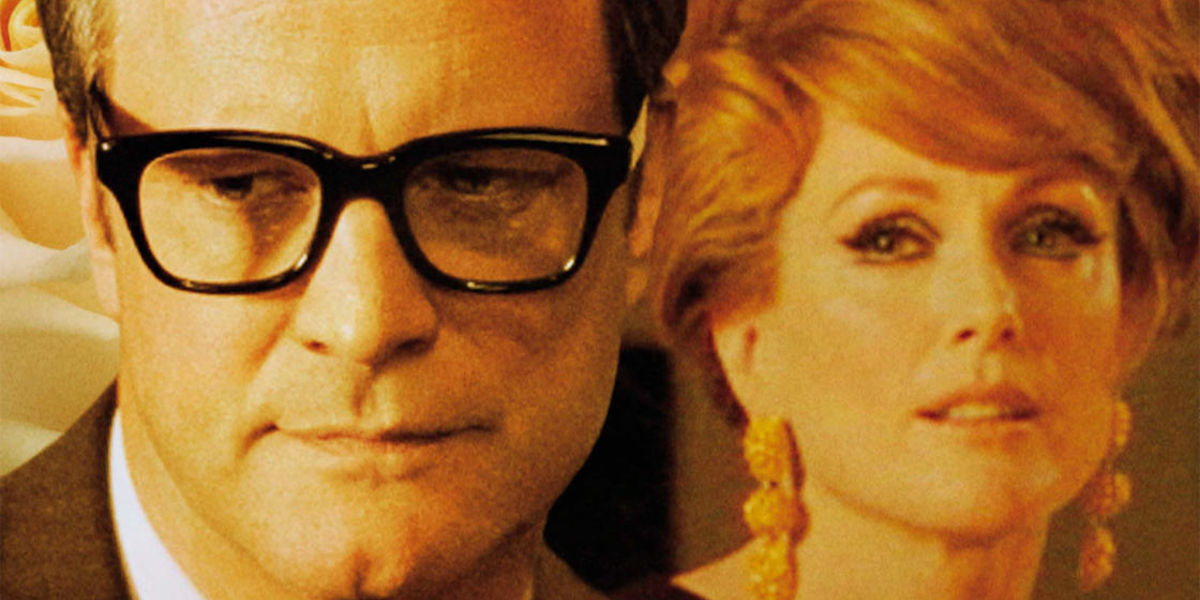Tom Ford's powerful directorial debut - A Single Man - evokes a raw duality of beauty and sadness, in an artfully illustrated narrative on human emotion. This A Single Man film review doesn't just aim to look at the movie as a cinematic piece but goes deep into A Single Man themes, specifically those related to grief, loss, and acceptance.
Set against the backdrop of the 1960s' vintage Los Angeles, the story traces a day in the life of George Falconer (played masterfully by Colin Firth), an English professor grappling with insurmountable sorrow following the abrupt loss of his long-term partner in an automobile accident. Despite the deeply personal nature of the narrative, the film manages to touch upon universally relatable themes of love, mourning, loneliness, and the ongoing struggle for acceptance - cybernetically injecting raw human truth in every scene.
A Single Man Film Review: A Profound Exploration of Grief and Loss
The film opens up with an ethereal sequence replicating George's recurring dream about the accident that took his lover's life. Narrated with a delightful retro-noir aesthetic, Tom Ford uses this sequence, not merely as a glimpse into George's subconscious distress, but as a cinematic means to establish the pervading tone of sorrow that transcends the narrative's entirety.
Taking viewers on an intimate exploration of George's life post the unfortunate incident, Ford delves into his process of comprehending and accepting the anguish of loss and solitude, thereby making grief and loss the central theme of this artful creation.
The poignant endearment that George feels towards his deceased partner, Jim, is exhibited through flashbacks. This narrative technique not only provides depth to George's character but empathetically reveals the vast void that Jim's death has left in his life. George's isolation and grief touch the audience on an emotional and psychological level, making them question how they would react in a similar circumstance.
How Does A Single Man Address Grief and Loss?
A Single Man stands as a testament to Tom Ford's ability to create an on-screen embodiment of grief and loss. Firth’s remarkable performance, complemented by Ford's directorial prowess, has successfully carved an authentic portrayal of a man dwelling in despair.
While the film subtly traces George's journey towards acceptance, it realistically reveals that the understanding and dealing with loss is not a linear process. The movie expertly communicates through its storyline that the effects of grief extend far beyond immediate emotional reactions. They seep into daily life, disrupting schedules, routines, and even personal identity.
The symbolic use of colour, particularly the transition between muted and vibrant tones, serves as a metaphorical representation of George's fluctuating emotional state. When George encounters moments of genuine connection or remembrance, his world is momentarily stained with colours, hence visually signifying his internal emotional oscillations.
Solitude Envelops as a Veil of Despair
Profoundly enveloped by the emptiness that follows a devastating loss, "A Single Man" presents an unnerving reality that penetrates your heart. The protagonist, George, is played with a plethora of emotions by Colin Firth, whose despair is as tangible as his occasional indulgence in memories of his lost partner.
Set in the 1960s, when the acceptance of homosexuality was minuscule, George's predicament only deepens as he must grieve in silence. The movie's haunting representation of his loneliness encompasses a societal problem that acknowledges the lack of social acceptance of grief-stricken homosexual individuals.
Struggles Concealed Behind a Mask of Normalcy
In spite of the crushing heaviness of his sorrow, George preserves a mask of normalcy at his professional space, a local university. His exceptionally delivered lecture subtly expresses his internal turmoil behind intellectual words, demonstrating a classic case of the saying, "The most significant struggles are the ones we keep hidden."
His charismatic personality successfully distorts the brutal reality of his personal life to his students - a starkly contrasting picture of his repressed emotions emerges, complicating his already fraught existence from the perspective of the viewer.
Unanticipated Encounters and Evolving Relationships
Amid his despair, an unexpected connection develops when one of George's students, Kenny, played artfully by Nicholas Hoult, becomes interested in him beyond the academic realm. Their companionship breaks away from the solitude that George is perpetually ingrained in, and subtly blooms as a beacon of comfort in his melancholic existence.
Directorial Brilliance and Visual Activism
Directed by Tom Ford, the story's trajectory reveals not just a sensitive portrayal of grief, loss, and acceptance, but also a striking commentary on the societal attitudes prevailing in the 1960s. The cinematic brilliance and visual activism evident in "A Single Man" make it a compelling watch.
The subtext of bigotry subtly woven into the narrative offers a broader perspective on the issue at hand, opening up a dialogue about inclusion and acceptance of all forms of love without discrimination. It portrays the need for a holistic perspective on loss and the cyclical dynamics of grief, uphill battles, acceptance, and healing.
Final Thoughts
In conclusion, "A Single Man" is way more than just a riveting tale of one man's melancholy existence post loss. It delves into societal issues and blends them seamlessly with the immersion of a deeply moving, personal emotional journey. The pain, the struggle, and the sheer intensity of the heartache the protagonist bears cast a resonating echo, compelling viewers to delve deeper into the layers of their emotions and the persisting societal norms.




